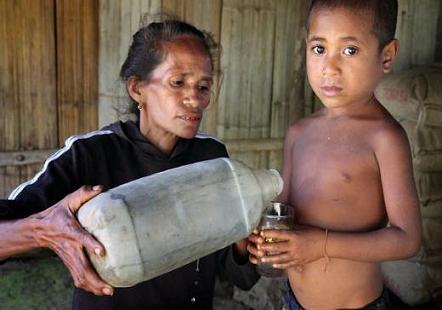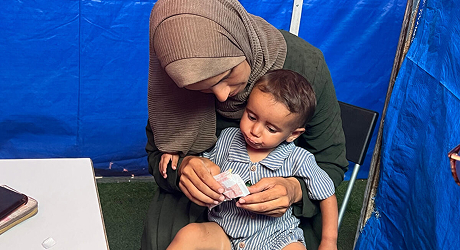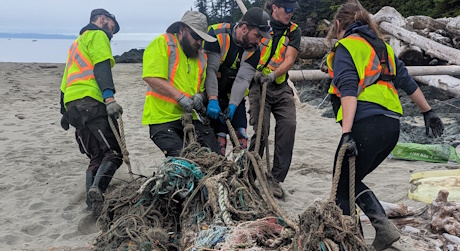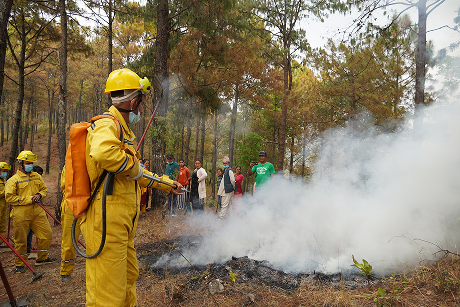Footprints Project
Since 2005, travelers like you have helped us change the world through micro-donations.

-
A total of
13153
Travelers
-
donated
$30000.1
(100% funded) -
to help improve
Water & Sanitation
-
in
Timor-Leste
The community at Kaimeta (an aldeia) had no proper water supply system and were dependent on temporary water supply systems, which were prone to wide-scale microbial contamination.
Project outcomes
All homes were provided with potable water supply by way of 12 community water points constructed at convenient locations in the village. These taps immediately reduced the walking time and distance endured by the residents of Kaimeta collecting water.
The water points have a reserve tank to collect and store water for the ongoing convenience of the households they serve.
As is common across Timor-Leste and in many developing countries, almost all of the community members defecated in open spaces. Diarrhoea is the most prevalent and problematic disease in rural Timor-Leste and can be easily prevented through effective sanitation and improved hygiene practices.
17 toilets were built in Kaimeta as part of this project, making the village effectively open defecation free.
As a part of hygiene education program, all the community members received education on safe hygiene behaviour. As a result, community members constructed tippy taps (a foot operated handwashing system made with locally, and often free, materials) in their households and toilets.
The most important and life-saving hygiene practice is hand washing at critical times (after defecation and before eating). It is a fact that hand washing at critical times alone can reduce the incidence of diarrheal diseases by 40%.
Challenges:
As with much development work, there have been challenges associated with this project, including:
• Availability of spare parts: spare parts are not available in the district town. This will add a slight impediment to prompt repairs of the systems.
• Sustainability of hygiene behaviour change: Community members tend to easily go back to their previous unsafe hygiene behaviours. WaterAid will continue to work with the residents of Kaimeta to ensure these behaviours are being practiced.
Successes/attitudes of community:
Kaimeta has been a great success. Its success is the fact that having been previously deprived of the basic human right to safe water, this community of 197 people now have access to safe water, as well as sanitation facilities. The project itself had a high degree of community engagement, with the members of the village being part of the planning and implementation of the project. Local materials have been used where appropriate and available.
This level of community engagement is not uncommon, as there always a real need for these services and the community’s involved are usually eager to get involved and participate with the project.
Role of the partners:
The role of local partners is instrumental to successful implementation of this project. Local partner staff know the local context, language and culture. This, along with their technical skills, has contributed to the success of this project.
However, the local partners lack in-depth technical, community mobilization and hygiene promotion skills. WaterAid mentors the partners throughout the project implementation.
WaterAid Australia have established strong links with other donors and aid organisations who are working to meet other development needs of the community, such as small scale agriculture and micro-economies. The confidence that the communities have developed having successfully completed their water and sanitation project continues to motivate them and has seen them lobby for other development activities in the community. WaterAid Australia aims to capitalize this community energy during two years of follow up.
What's next for this project?
In order to maintain momentum and enthusiasm for the project (and subsequent utilisation), WaterAid Australia provides follow up visits and “hands on” support for two years.including in their collection of maintenance funding, technical input if they are encountering any problems and information about where to source spare parts.
The community have committed to adding funds to a communal pot in order to maintain facilities in the future.
Traveling soon? When you buy travel insurance with us, you can make a contribution towards a cause you care about.
Get a quote






